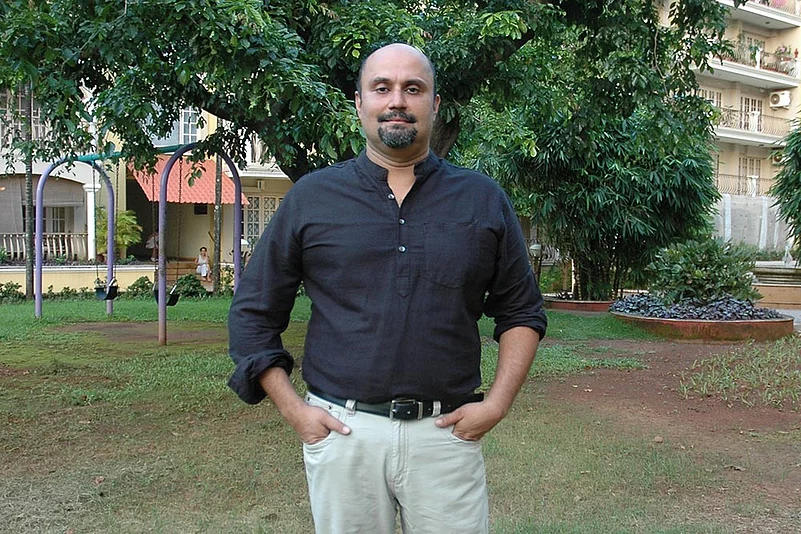India’s immense diaspora still has room to expand! That’s the first thing I noted in Ushuaia, the extraordinarily situated “end of the world” in Argentina, the southernmost city on earth. I roamed its slanting, chilly streets searching eagerly for fellow desis, and even enquired with municipal authorities. No dice. But everyone agrees it’s only a matter of time. Ushuaia grows rapidly, helped by enticing tax incentives from the government in Buenos Aires that has jump-started a mushrooming industrial base. An even bigger incentive is the burgeoning tourism marketplace; more than 90 per cent of travellers to Antarctica sail from the city, plus, there are many other local attractions, including the charming, very narrow gauge steam train that transports visitors to literally “el fin del mundo” (the end of the world) in Tierra del Fuego National Park. You can’t go further south except by boat, and in the other direction, you can motor directly for some 15,000 km to the very tip of Alaska in North America.
On the gate to the beautiful port of Ushuaia is a huge sign declaring, “No British Pirates Allowed”. While, right by the municipal headquarters, another plaque insists, “The Malvinas are, and will remain, Argentine.” Wherever you go in this vast country, there are reminders of the national debacle of 1982, when Margaret Thatcher’s British military defeated Argentina in just over two months of hostilities. It’s a very sore topic, generally better skimmed over or, better still, ignored in conversation with the residents of Ushuaia. They look out over the Beagle Channel directly to Chile—the only country in the region which eschewed neutrality and actually sided with Britain—and simmer wrathfully. It doesn’t help that the Chilean football team has beaten Messi’s national squad in the last two Copa America finals.
Ushuaia slopes down directly to the spectacular Beagle Channel connecting the Pacific and Atlantic oceans, where the icy waters visibly teem with a great variety of fish. Yet, this piscophile Goan was stunned to head-shaking disbelief to learn no one bothers to eat them. Instead every local prefers slabs of red meat; sometimes gamy, distinctive Patagonian lamb, but almost always beef. Giant unadorned steaks feature at both lunch and dinner, served sauceless, beautifully grilled with just salt and pepper to season. The Argentine obsession with beef is matched only by a similar fixation with dulce-de-leche, aka caramel. This appears all day from breakfast to dessert after dinner, and in the most luscious ice-creams too.
Further up from Ushuaia on Patagonia’s long border with (just whisper the name) Chile extends one of the world’s grandest geographical features—the Southern Patagonian Ice Field, much of which is consolidated in Los Glaciares National Park. This giant ice cap in the Andes comprises 47 glaciers and contains the world’s third-largest reserve of freshwater. Most of the park’s terrain is inaccessible, but the Perito Moreno glacier (it spans more than 250 square km) is relatively easily reached. Whipping towards the magnificent mass of ice by fast boat across Lake Argentina is surely one of the finest travel experiences anywhere. Perito Moreno appears a blue-white line in the distance, then its crags and pinnacles become defined, and within a few minutes, you are dumbstruck in front of the great glacier, stunned to silence as huge cannonshots sound as the ice calves and sheets crumble to the water.
Patagonia extends vast over a million square km, with one of the lowest population densities in the world. A reasonably sized estancia could sprawl over 1,000 hectares, managed by just a handful of souls. There is a constant sense of isolation, of haunting expanses in all directions reaching right to the horizons. This is a desolate land, but also inexplicably compelling. I am finding it very hard to get over simply driving through those timeless, empty landscapes for a few days. It has been the same for countless travellers, as recounted by everyone from Bruce Chatwin to Charles Darwin, who feelingly wrote, “I find the plains of Patagonia frequently pass across my eyes; yet these plains are pronounced by all to be wretched and useless. They can be described only by negative characters; without habitation, without water, without trees. Why then, and the case is not peculiar to myself, have these wild wastes taken so firm a hold on my memory?”
The effects of climate change were obvious. In winter, I was wearing short sleeves. On a helicopter ride, the pilot landed on a bare tabletop mountain that’s usually covered with at least two metres of snow!
Goa-based photographer and writer Vivek Menezes is co-founder of the Goa Arts & Literature Festival
E-mail your diarist: vmingoa [AT] gmail [DOT] com

























